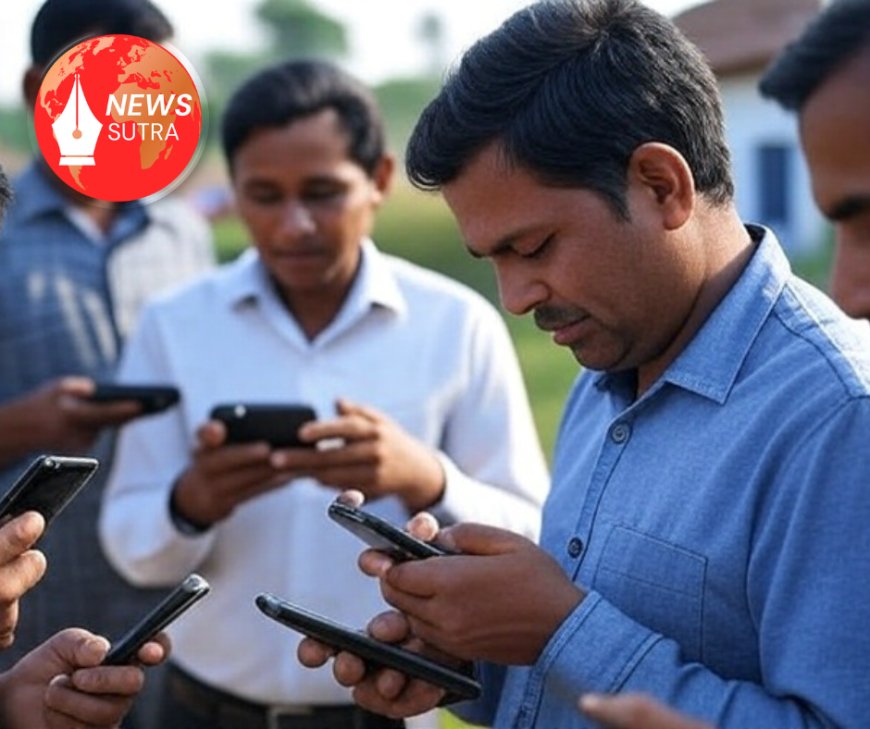Digital Electioneering 2.0: How AI and WhatsApp Are Quietly Rewriting India’s Campaign Playbook
From voter profiling to targeted messaging, AI and WhatsApp are transforming Indian election campaigns. This deep dive explores the emerging tech tactics shaping the future of democracy.

Introduction: A Quiet Digital Revolution in Indian Politics
As India barrels toward its next major elections, a technological arms race is unfolding behind the scenes. Gone are the days when loudspeakers, posters, and roadshows dominated the electoral battlefield. Today, AI algorithms and WhatsApp forwards are doing the heavy lifting—reshaping political strategy, voter outreach, and even influencing public opinion with stunning precision.
From BJP’s booth-level data collection units to Congress's WhatsApp groups for real-time mobilization, political parties are rapidly adopting AI-powered analytics, natural language processing (NLP), and end-to-end encrypted messaging platforms to craft what some experts now call “predictive democracy.”
But is this tech-driven transformation empowering voters—or manipulating them?
How AI Is Powering the New Political Machinery
Artificial Intelligence is not just a buzzword in Indian elections—it’s becoming a central decision-making engine. Political consultancies and digital strategy firms are deploying AI tools to:
-
Profile voters based on past behavior, caste, income levels, and online activity
-
Segment constituencies for micro-targeting messages down to the polling booth level
-
Run sentiment analysis across platforms like Twitter, Instagram, and Facebook
-
Generate automated content in regional languages using large language models
-
Forecast voter turnout and impact of public speeches in real time
According to Brookings Institution, AI-enabled data modeling helped several political parties in India predict swing constituencies in the 2019 general elections with up to 80% accuracy. These models are now being updated with real-time datasets from the Election Commission of India and mobile engagement patterns.
WhatsApp: India’s Most Powerful Campaign Tool?
With over 400 million users in India, WhatsApp has emerged as a stealth weapon in electoral arsenals. Its closed, encrypted ecosystem makes it ideal for peer-to-peer campaigning, spreading unverified content, and coordinating ground workers in real time.
Parties now create tens of thousands of booth-level WhatsApp groups, with admins disseminating:
-
Targeted videos and voice messages in local dialects
-
Daily talking points and rebuttal scripts for volunteers
-
Event alerts and “viral” content designed to spread through forwarded chains
In 2023, the BJP deployed AI-backed dashboards to monitor which messages gained traction and which failed to spark engagement. Meanwhile, the Congress reportedly used tools like Whazapp and Trellis to create region-specific messaging workflows, particularly in states like Karnataka and Rajasthan.
Despite Meta’s content moderation policies, WhatsApp’s limited traceability continues to raise concerns over misinformation, hate speech, and deepfake videos, which have already surfaced in local elections across Uttar Pradesh and Maharashtra.
The Rise of Political Data Firms and Digital Consultants
India’s digital election boom has birthed a new ecosystem of data-driven political consultancies like:
-
Association of Billion Minds (ABM) – reportedly aligned with BJP
-
Indian Political Action Committee (I-PAC) – worked with multiple regional players
-
Jarvis Technology & Strategy Consulting – offering AI-led voter mapping tools
-
Social Catalyzers – known for high-frequency influencer campaigns
These firms use machine learning algorithms to create dynamic voter personas, tailor messaging around emotional triggers, and even optimize rally timings based on weather and traffic patterns.
A report by Carnegie India highlighted how these firms are pushing the boundaries of “digital micro-politics” and reshaping democratic engagement into data transactions.
Is India’s Electoral System Ready for This Shift?
Despite the innovation, this surge in digital electioneering raises serious regulatory concerns. The Election Commission of India (ECI) has no comprehensive guidelines governing the use of AI, big data, or encrypted platforms in campaign strategy.
Cyberlaw experts have repeatedly warned that without digital transparency laws, political messaging can become hyper-targeted disinformation, impossible to trace or fact-check. A case in point: In the 2022 local elections, doctored AI-generated audio of a political leader caused mass confusion among voters in rural Tamil Nadu before it was debunked days later.
Digital rights organizations such as Internet Freedom Foundation (IFF) are calling for clear policy frameworks to ensure ethical use of AI and curb surveillance-style voter monitoring by parties.
Women, Youth, and the Personalization of Politics
Interestingly, digital electioneering is helping parties target previously under-engaged groups like women and first-time voters. AI-led "emotion classifiers" are used to frame personalized appeals, often built around safety, education, and job creation.
During the 2024 Telangana elections, a regional party used WhatsApp surveys and AI-assisted forms to solicit input from college students. The feedback was automatically clustered using natural language understanding (NLU) and integrated into campaign speeches within 72 hours.
Such hyper-personalization, while innovative, also risks becoming exploitative, especially if not transparently disclosed.
Conclusion: A New Age of Influence, With Old Questions Resurfacing
The fusion of AI and WhatsApp in Indian politics represents both a technological leap and a moral dilemma. On one hand, it enables targeted, efficient voter engagement. On the other, it opens the door to manipulative tactics, algorithmic bias, and privacy violations.
India’s democracy must adapt swiftly—not just to regulate these tools, but to ensure fair play in an increasingly digital election landscape. With the next general elections approaching, the line between empowerment and exploitation is growing ever thinner.
For further reading, this in-depth analysis by the Observer Research Foundation (ORF) outlines key recommendations on ethical digital campaigning in India.














